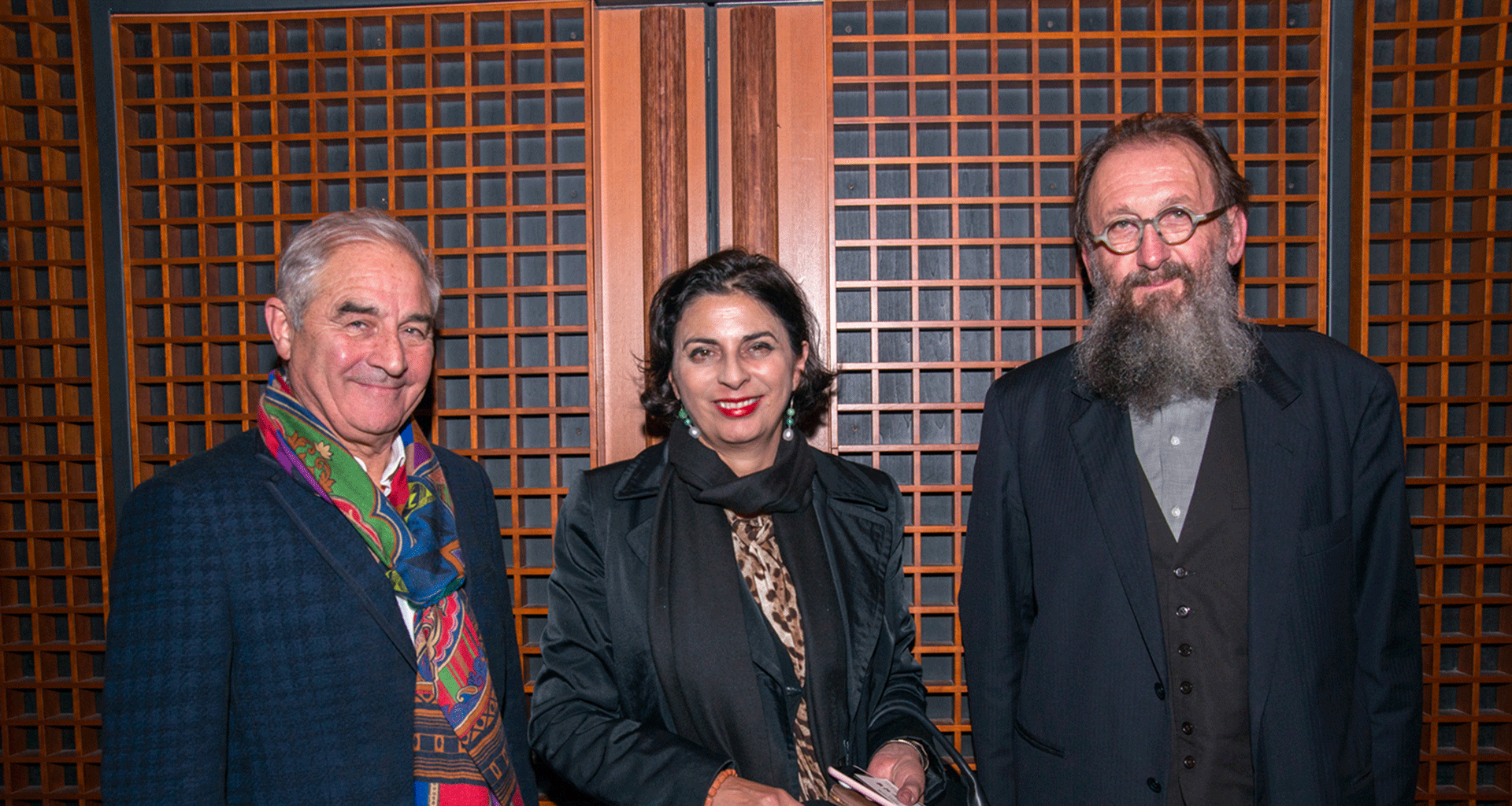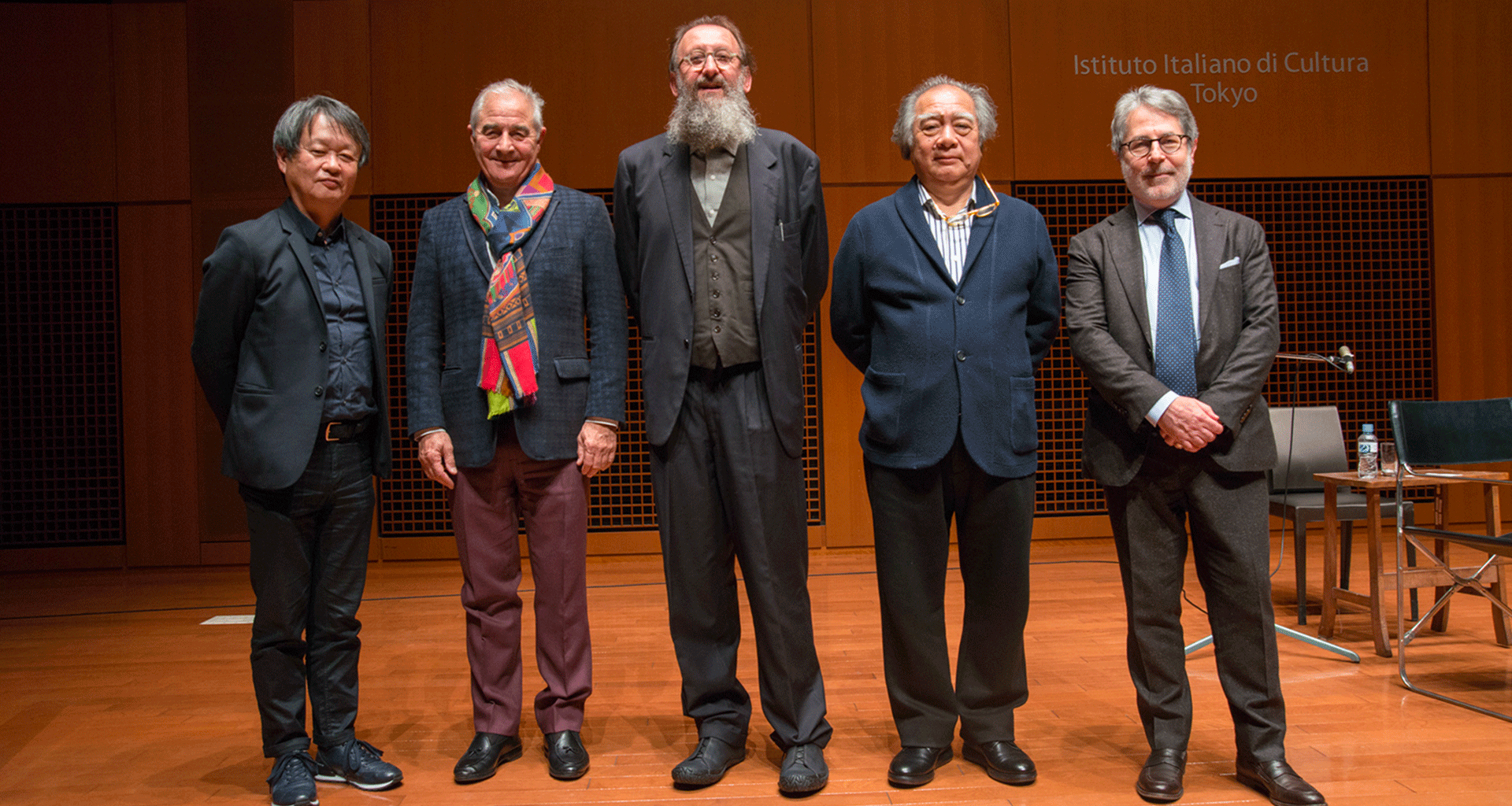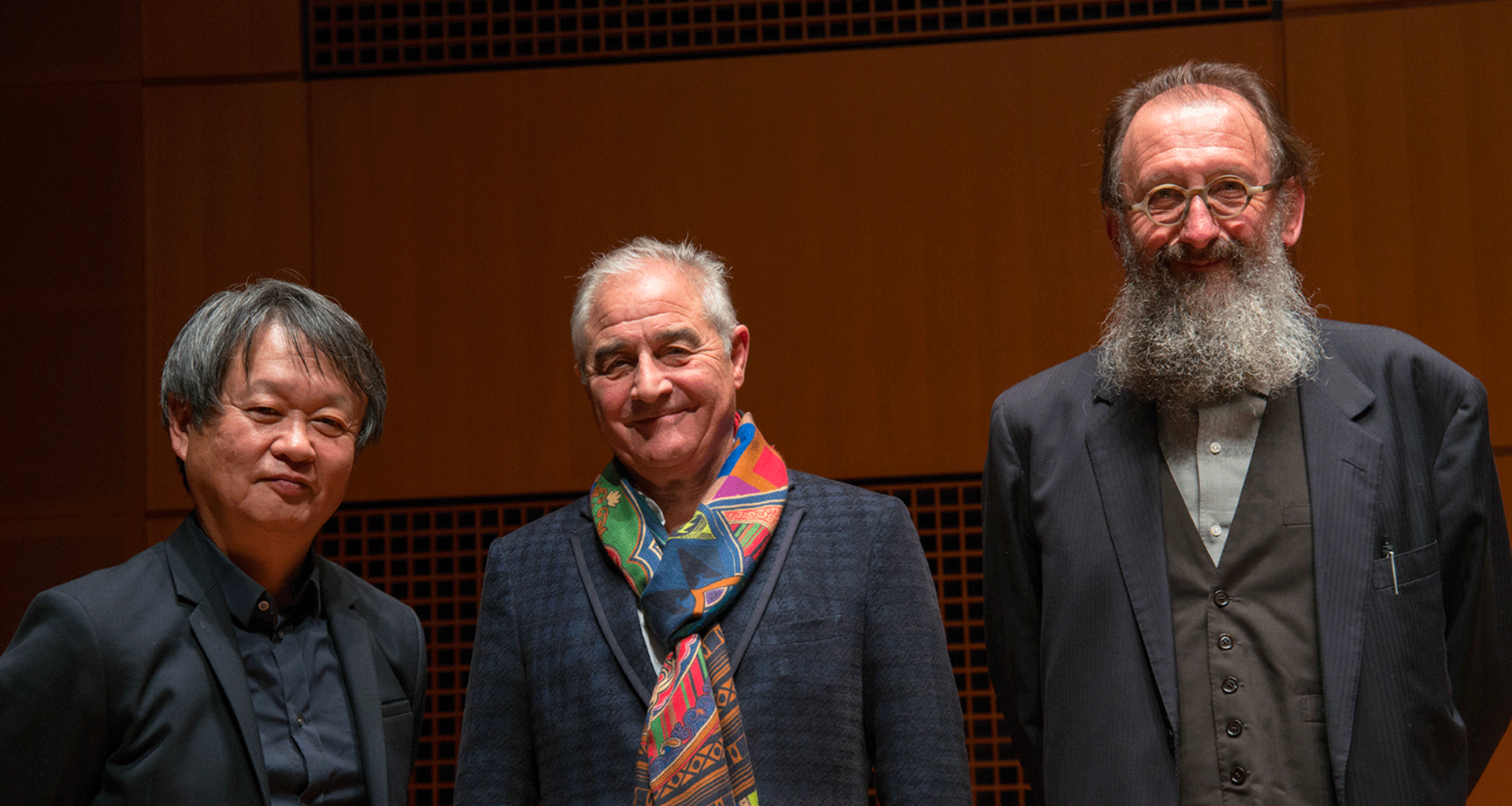Japan. De Lucchi and Fukasawa at the Italian Cultural Institute of Tokyo.
The subject of craftsmanship is highly topical. Making things by hand, with expertise and quality, has increasingly become a battle of prowess between man and machines, especially today that objects can be produced using instruments offering quick and precise three‑dimensional modelling. But is there a difference between things made by machines and things made by hand? Is this not just a nostalgia for times gone by and the snobbery of bored intellectuals? After all, we created machines and we make them work, so they are also the brainchild of human ingenuity. Moreover, machines produce things in greater quantities, at a lower cost and for everyone.
It is not a futile question. A civilisation based on machines offers many advantages but also risks confining us to a standardised dimension that nullifies individual personality. On the other hand, an artisanal dimension alone would prevent us from benefitting from the wellbeing that much of our world has and would not enable us to enjoy the advantages of technology in fields such as medicine or telecommunications, to name but two.
But the great quality of the artisanal world is its human dimension. Starting over again every time that we embark upon making something with our hands is an extraordinary process that forces us to reflect on ourselves, as well as our ability, talent and creativity. We need to engage in this process more urgently than ever. Automatic gestures are efficient and certain but they are stultifying, and render us incapable of reacting to the smallest difficulties.
Michele De Lucchi


